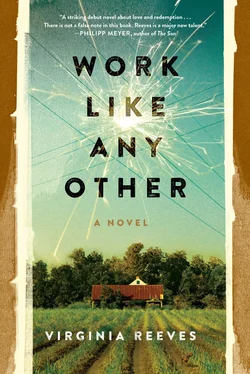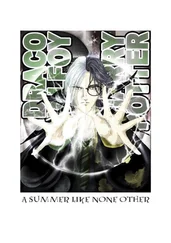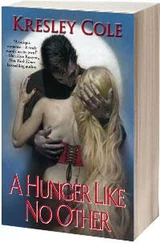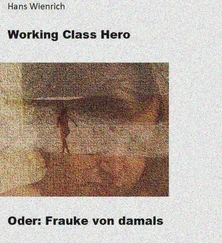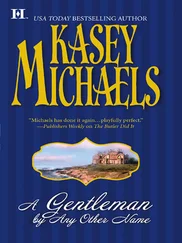At the end, I found a deed transferring ownership of the property.
“I don’t understand.”
“It took a lot of convincing,” Moa replied, “and I’m still not altogether convinced. But Wilson believes you deserve a home, and you’ve done enough to convince me you deserve a chance at least.”
“You’ve done good work here, Ross.”
“It’s your home, Mr. Roscoe.” Jenny smiled. “Like I said.”
Moa offered her seat to Gerald, who squeezed himself against me like a child. “Mother took us away from each other,” he whispered, warm and moist against my ear. I fought revulsion. He was my son, but he was too soft a man. I should’ve been able to welcome his need, to hear in his words my own misfortune and loss. But instead, I heard an educated man, fed and clothed and housed in ease and comfort, his only handicap self-imposed through the biting of his nails and cheeks — I heard this man lamenting his years of privilege, years without a father, but still years of ease. I knew it was unfair to compare our time. I know it still. When I see him, I remind myself that my punishment came from a choice I’d made, and that his was out of his control. I try to talk to him about his life over there in Tuscaloosa, full of dinners and fancy dress and occasional ladies, though he still hasn’t married.
“It’s all right, Son,” I told him.
Moa had gone to stand between Jenny’s and Wilson’s chairs. They were all so strong — the three of them — strong and whole enough to be able to offer a part of their lives to me. I didn’t want half of Marie’s assets. I didn’t want to fight the divorce. But I wanted to stay. I hadn’t before that moment, before seeing Moa and Wilson and Jenny across from me. I wanted to stay close to them. I wanted to stay because the deed was theirs to transfer.
I wanted to stay because they believed I should.
Iwas freshly bathed and sitting down to breakfast when the knock came on the door. I pictured Jenny out there, my regular visitor. Only a week had passed since the meeting with Robert Hill, and she’d come every day. At first I thought it was out of guilt, but I was growing to see that ours was a friendship. We are currently exchanging lessons — she’s interested in the workings of electricity, and I’m learning how to use the herbs she’s cultivating in the meadow.
“Coming,” I said, pulling a thin undershirt over my head, maneuvering my right arm through the sleeve. I would spare her the sight of my stomach and shoulder.
Jenny wasn’t at the door.
Goddamn it, Marie.
Her dress was blue, like the one her younger self had worn, but the Marie that stood before me wasn’t young. The evidence of her age was everywhere — the thinning and graying of her hair, the webs of lines at the corners of her eyes, the veins and spots on her hands. It could’ve been her mother there in front of me, that long-dead woman I’d never met.
“You have a dog.” Her voice was unchanged.
Wind was in the trees outside, shaking the branches. The leaves slipped together like whispers.
“May I come in?”
I stepped aside, regretting my shirt. Jenny didn’t deserve to see the ruin of my body, but Marie did.
She took a seat at the table, and I closed the door.
I sat down opposite her.
Maggie followed behind, a rumble filling her throat. “Down.” She dropped to the ground, whining once.
“I heard an eastern phoebe on my walk over.”
I didn’t respond.
“Roscoe.”
The woman before me was a mess pieced together from fragments that sat ill and wormy in their current grouping. I couldn’t place her face, at once so familiar and yet completely unknown. She was the young woman I’d met in the village on the Coosa, and she was also the woman who’d sat next to me in my hospital bed asking me to sign away my past. She could have been a teacher coming home from her schoolhouse, and I could’ve been an electrician coming home from my dam. Her belly could’ve been rounding with its second pregnancy, Gerald a sweet toddler nannied by Nettie Williams. But she was also that broken woman, bleeding and pale, on her way to the hospital in Birmingham, where the parts of her that grew babies were removed, along with her compassion and her hope. She was mother to a son who fed on the milk of the woman three doors down. She was the daughter of a dead man who’d left her his land, a landowner who’d given her land away, the mother of a resentful son, a wife no longer married.
The sun had changed its slant outside.
“Roscoe.”
“Why are you here, Marie?”
She cast her eyes around that meager room. She sighed, and the breath was ugly — deeply worried and aged, but familiar. Even when she was young, it held those same tones.
“You’re thin.”
“Prison will do that.”
“It fits you.”
She stared at me, and I made myself focus on her face — the light eyes with their new lines, the graying hair, the thinned lips and widened nostrils, the pronounced cheekbones. Though her body was wider, her face was gaunt and pale.
“I didn’t expect you to be here.”
Again, I didn’t offer her a response.
“I didn’t expect you to get out so soon, and when you were released, I expected you would go someplace new. All this”—she motioned around the room—“surprised me. Gerald let me know you were here. He says you’re going to fight for your rightful share of the property, that you’ve already retained a lawyer. I suppose that’s my main reason for coming. I’ve given the land to Moa and Wilson. It’s theirs, Roscoe, and that’s as it should be. For all we’ve taken from them, it’s only right. It was the only way I could think to start repaying our debt. Wilson suffered all that hardship — his family suffered all that hardship — because of our mistakes.”
“ Our mistakes?”
She dropped her gaze and pinched the bridge of her nose. “I have plenty to own, too. You think I’m not willing to admit that?”
“I don’t know what you’re willing to do, Marie.”
She nodded as though I’d asked her a question. Yes, her nod said, that’s right . “Did they tell you?”
“About what?” I wanted her to admit her treachery, her dishonesty and manipulations. She could’ve said so many things.
I’m sorry, Roscoe .
I could nearly see the letter she could’ve written.
Her eyes came to rest on the pallet by the stove. “Are you sleeping there?”
“Sometimes.”
I came round to her side of the table. “Take off my shirt.”
“I’m sorry?”
“Stand up and take off my shirt.”
“Roscoe, I’m not comfortable with that. I— You must not know. It’s—”
“Take off my shirt.”
She took a deep breath, pulled herself free of the bench. Her hands were itchy at her sides, flighty and quick. They moved toward me, then away, and then back to the hem of my shirt. We were in that room together. Put your hands on my body, Marie .
She did, and her fingers were cold where they brushed my skin. I lifted my left arm, but my right wouldn’t rise, and she accommodated it, sliding my shirt free of that low limb.
She stared at my body and brought a finger to the line on my stomach.
Sun was outside the window, trees and sky. Maggie was there, her head on her paws. Marie’s touch was torture against my skin.
She made her voice as small as possible when she said, “We are no longer married, Roscoe.”
That’s right, Marie. We aren’t.
Her hand lingered. “It’s easier for everyone.”
“Easier?” Anger was upon me fearsome and hurried, and with it, the words I’d been willing myself to speak since first recognizing her face at the door. “Is it easier for Gerald? For Moa and Wilson and Jenny? Is it easier for all of them to take on the burden of me?”
Читать дальше
